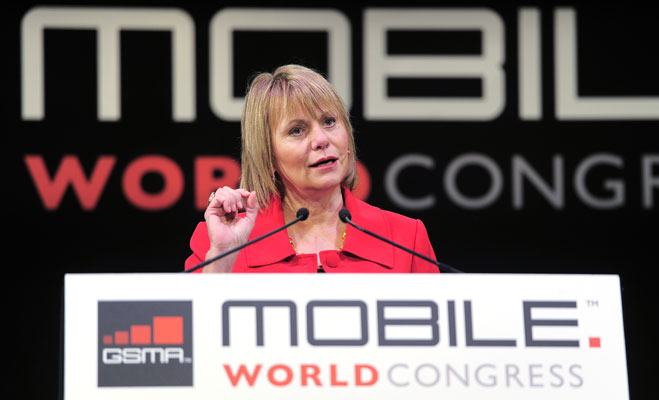“Every person benefits from professional coaching”
International Coach Federation President Janet Harvey talks about how the coaching industry looks set to expand

The 2012 ICF Global Coaching Study concluded that professional coaching appears to be growing, generating close to $2bn in revenue annually worldwide. Why are businesses turning to coaching so enthusiastically?
The business sector is tougher than ever, and therefore the demand for higher productivity and effectiveness from every individual leader and the teams they lead is critical to sustain success. Professional coaching explicitly targets maximising potential and doing so unlocks latent sources of productivity and effectiveness. At the heart of coaching is a creative and thought-provoking process that supports individuals to confidently pursue new ideas and alternative solutions with greater resilience in the face of growing complexity and uncertainty. Positive results generate enthusiasm and professional coaching inside organisations is helping to maximise potential and unleash creativity.
The ICF strives to promote professional coaching as a leadership strategy. How do businesses stand to gain from coaching?
Humans are generally creatures of habit. Coaches will help to unlock clients’ inner potential and inspire them to learn new ways of thinking. A skilful management team is a crucial component to a company’s success. Studies suggest that among the four drivers in employment, staff rank their relationship with their bosses as the most important factor.
This indicates how important it is that company leaders act as role models. Most managers that move to senior positions do so because they possess high emotional intelligence (EQ) and can relate effectively with their employees and inspire them in a way that enhances their productivity and creativity. Coaching can help to develop business leaders’ levels of EQ and subsequently improve their relationship with their staff.
Is coaching effective on all levels of a business, or is it primarily a tool for senior leaders?
Professional coaching primarily focuses on maximising potential and thereby builds a dynamic capacity to originate, to produce, and to learn from results. Every person benefits from coaching and there are specific practices for creating coaching programmes and a coaching culture that addresses each level of an organisation so that consistency and congruence are achieved.
Coaching isn’t just for senior leaders. Coaches can help to unlock clients’ inner potential. Investing in a professional coach will signal a commitment to support individuals in an organisation in order to help them continue driving positive results and take the measured risks to implement new creative solutions.
Some of the case studies presented by the ICF point to a monumental return of investment from coaching, not just in increased revenue but in productivity and quality of work. How does coaching achieve that?
In the face of uncertainty caused by workforce reductions and other factors, expectations of a workforce which remains in a suffering company are very high. Leaders expect the workforce to adapt and be creative, tapping into unused potential both as individuals and as teams throughout the company. Restoring self-confidence and trust to face any upcoming challenge is critical to meet organisational demands. Professional coaches focus on all of these needs through thought-provoking exchanges, which heighten personal and professional potential.
There has been a call for coaching to be regulated by professional bodies such as the ICF. How would that affect the industry and clients?
The ICF Global Coaching Study 2012 indicates that among those who believe coaching should be regulated; nearly 78 percent feel that professional coaching bodies are best suited to facilitate the profession’s governance. To that end, the ICF stands strongly for professionalism and self-governance within coaching. The standards and structures built by the ICF over the past decade – which support the emergence of coaching as a valued profession – also provide a solid-foundation for the self-governance of the profession. In addition, rigorous adherence from professionals to these standards and practices provides the necessary assurance that consumers of coaching are protected from any harm. The ICF works very closely with allied association colleagues and governmental entities around the world to ensure that the self-regulation of coaching is meeting the demands of professional coaching practitioners and clients alike.
Anecdotal evidence suggests that coaching is an effective tool for a variety of different industries. How does a coach prepare a strategy for a client? What are a coach’s goals?
Every coaching engagement is customised by definition because the relationship is a co-created partnership. The individual client and the sponsoring organisational leader are involved in the creation of coaching goals, documenting measurable outcomes and declaring observable evidence for new behaviours that match the job and role competencies required for the business to succeed.
Some of the more common examples include; executive assimilation, high-potential leaders being prepared for an expanded range of control or greater strategic authority, strengthening executive presence, improving team consistency for delivering on-time, on-budget solutions by addressing interpersonal communications and preparing for organisational change. Organisations define their key goals. The specific client, working in partnership with the coach, identifies the mindset and skillset targeted for development and growth that will facilitate that individual or team in achieving the relevant goals.
Accountability for achieving the goals rests in the hands of the client. And as clients become more aware of the personal impact the coaching is having, they may choose other ways of relating that engage colleagues and team members.
What are the key characteristics that make for a good coach? What should businesses look for in a coach? What should clients avoid?
Effective professional coaching occurs when the practitioner is well trained and experienced while allowing a respectful relationship between themselves and their client. Interview different coaches to determine the length of training and whether the school that provided the training is recognised by a professional coaching organisation. Furthermore, ask if the coach has been awarded a credential by that organisation.
An ICF-certified coach would have received 60 to 200 hours of training, (the number of hours depending on the credential level) and within that successfully demonstrated knowledge of ethical practices and peer-reviewed applications of the coach competence with clients. Additionally, 40 hours of continuing coach education are required every three years in order to retain an ICF Credential. There are three levels of ICF Credentials: Associate Certified Coach (ACC), Professional Certified Coach (PCC) and Master Certified Coach (MCC).
The process of selecting a coach operating within the ICF can seem overwhelming. To aid the procedure, all ICF-credentialled coaches are searchable through an online directory, the ICF Coach Referral Service (CRS) – a free public resource that allows clients to tailor their search for a qualified coach based on specific criteria. When in the process of selecting a coach, clients will usually interview three different coaches to find a match.
Ultimately, the candidate has to find confidence in a coach, while also the chemistry between all parties has to be right. The personality between client and coach doesn’t have to match – sometimes opposite personality types will bring the best results.













